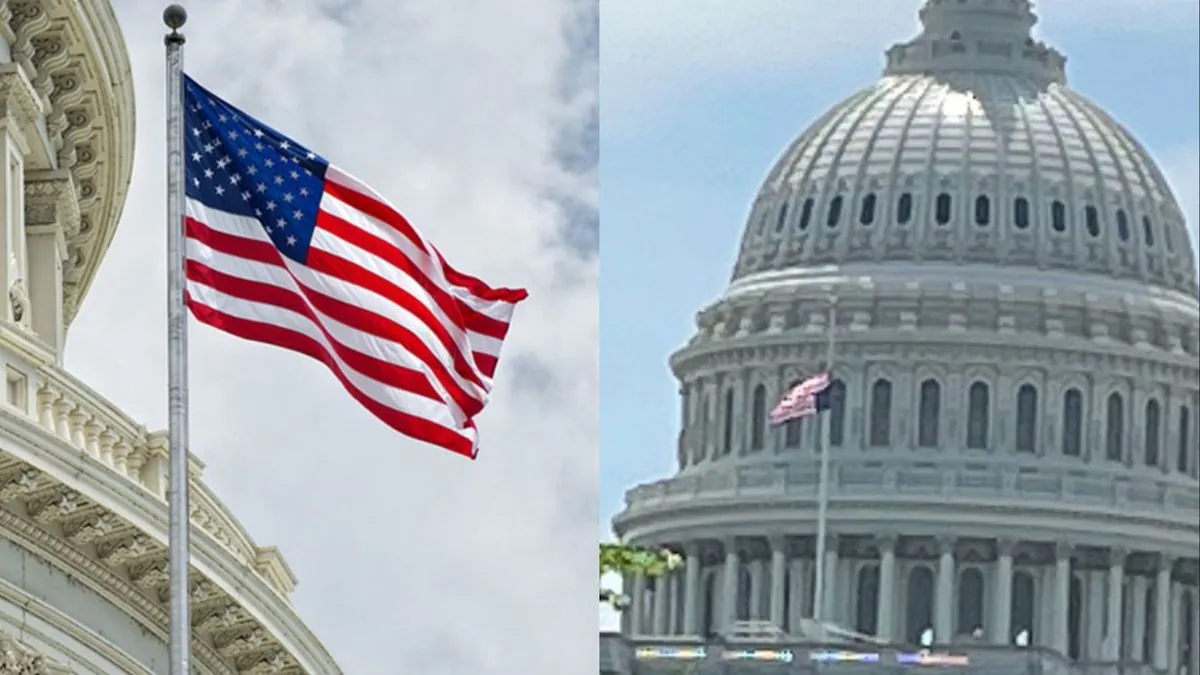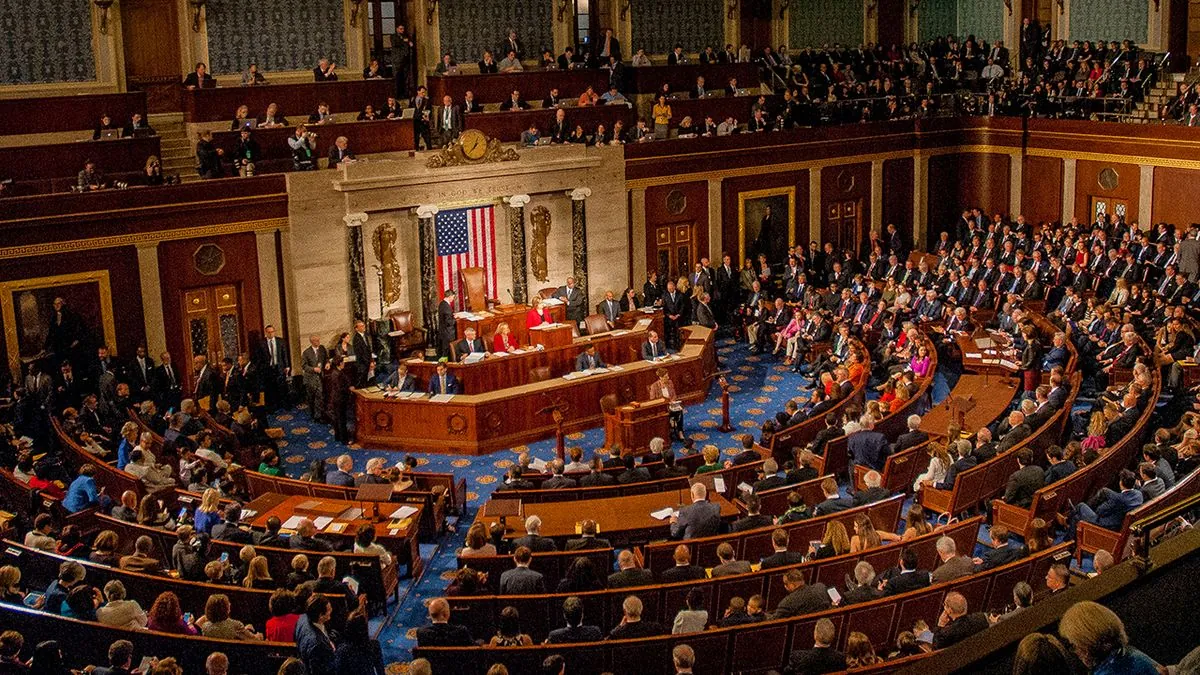House Vote on Spending Bill with Voting Rules Sparks Senate Clash
U.S. House to vote on stopgap bill with controversial voting requirements, risking government shutdown. Senate Democrats oppose linking spending to voting rules, setting stage for legislative showdown.

The U.S. House of Representatives is poised to vote on a contentious stopgap spending bill, potentially setting the stage for a legislative confrontation with the Senate. This development comes as the September 30, 2024 deadline for averting a government shutdown looms large.
Mike Johnson, Speaker of the House, announced that the proposed bill would extend government funding for six months while introducing new voting requirements. These provisions, rooted in unsubstantiated claims of election fraud, mandate proof of citizenship for voter registration and compel states to remove suspected non-citizens from voter rolls.
Senate Majority Leader Chuck Schumer expressed opposition to linking spending legislation with voting restrictions, urging bipartisan cooperation. The narrow 220-211 Republican majority in the House leaves little room for dissent, with at least one representative, Thomas Massie, already voicing strong opposition.

The potential government shutdown, if not averted, could have significant implications for the November 5, 2024 elections, where control of both chambers is at stake. It's worth noting that the last shutdown, spanning from late 2018 to early 2019, lasted 35 days, marking the longest in U.S. history.
Critics argue that the proposed voting restrictions are unnecessary and potentially suppressive. A 2017 study found only 30 instances of suspected non-citizen voting out of 23.5 million votes cast in 2016, highlighting the rarity of such occurrences. It's already a felony for non-citizens to vote in federal elections.
The controversy surrounding this bill underscores the complex nature of U.S. election laws. While the National Voter Registration Act of 1993 and the Help America Vote Act of 2002 aimed to increase participation and establish minimum standards, voting regulations still vary significantly by state.
Lisa Murkowski, a moderate Republican senator, predicts that Congress will ultimately pass a spending bill without the controversial voting provisions, but only after the House attempts to pass its version.
As the deadline approaches, the outcome remains uncertain. The U.S. Constitution requires Congress to pass spending bills to fund the government, and failure to do so could result in the 22nd government shutdown since 1976. During such shutdowns, only essential government services continue to operate.
This legislative impasse highlights the ongoing challenges in American governance, where partisan divisions can complicate even routine budgetary processes. With voter turnout in U.S. presidential elections averaging around 60%, the debate over voting rights and election integrity remains a critical issue in American politics.
"I urge the House to be serious, come to the table, work together to reach bipartisan agreement."
As the situation unfolds, all eyes are on Congress to see if a compromise can be reached before the fiscal year ends, avoiding disruption to government operations and potential voter backlash in the upcoming elections.


































